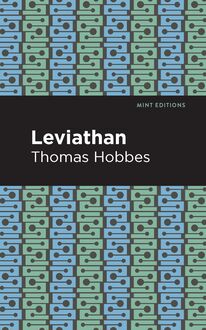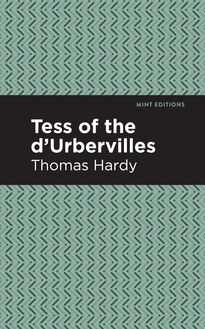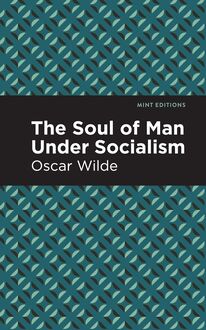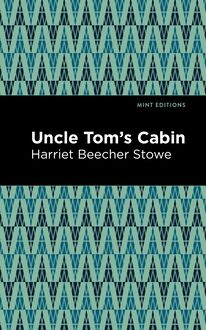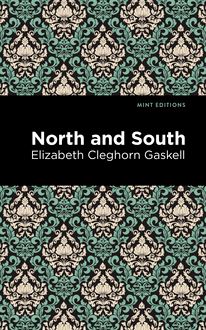-
 Univers
Univers
-
 Ebooks
Ebooks
-
 Livres audio
Livres audio
-
 Presse
Presse
-
 Podcasts
Podcasts
-
 BD
BD
-
 Documents
Documents
-
- Cours
- Révisions
- Ressources pédagogiques
- Sciences de l’éducation
- Manuels scolaires
- Langues
- Travaux de classe
- Annales de BEP
- Etudes supérieures
- Maternelle et primaire
- Fiches de lecture
- Orientation scolaire
- Méthodologie
- Corrigés de devoir
- Annales d’examens et concours
- Annales du bac
- Annales du brevet
- Rapports de stage
La lecture à portée de main
Vous pourrez modifier la taille du texte de cet ouvrage
Découvre YouScribe en t'inscrivant gratuitement
Je m'inscrisDécouvre YouScribe en t'inscrivant gratuitement
Je m'inscrisEn savoir plus
Vous pourrez modifier la taille du texte de cet ouvrage
En savoir plus

Description
“Revolutionary...Brontë's most feminist novel.”-Lyndall Gordon
“Charlotte Brontë has us by the hand, forces us along her road, makes us sense what she sees, never leaves us for a moment or allows us to forget her.”-Virginia Woolf
Shirley, the second published novel from Charlotte Brontë, is a propulsive social narrative that exposes the discord between the sexes, classes, and economic structure of early 19th century England. Set in 1811-1812 during the strife of the industrial revolution, this classic novel is a story of love struggling against social unrest and the conventions of the roles of women.
When Robert Moore, a struggling mill owner, decides to replace many of his employees with a new piece of machinery, a group of protesters destroys it before it is delivered. As the problems with his mill mount, he starts to become despondent. His cousin Caroline, a frequent visitor to the Moore home is infatuated with Robert, yet he also is inaccessible to her desires. When Caroline is eventually forbidden to visit the Moore home by her overbearing uncle, she is resolved to spend her life doing charitable work. Through her uncle, Caroline is introduced to Shirley Keeldar, a wealthy and independent woman who wants to donate her money to aid the poor. They become very close friends, and eventually Caroline is convinced that Shirley and Robert will marry. When the threats from laid-off mill workers increase, and soon after the mill is attacked, the conflicts of both love and class explode.
With an eye-catching new cover, and professionally typeset manuscript, this edition of Shirley is both modern and readable.
Sujets
Informations
| Publié par | Mint Editions |
| Date de parution | 06 octobre 2020 |
| Nombre de lectures | 0 |
| EAN13 | 9781513273082 |
| Langue | English |
Informations légales : prix de location à la page 0,0600€. Cette information est donnée uniquement à titre indicatif conformément à la législation en vigueur.
Extrait
Shirley
Charlotte Brontë
Shirley was first published in 1849.
This edition published by Mint Editions 2020.
ISBN 9781513266084 | E-ISBN 9781513273082
Published by Mint Editions®
minteditionbooks.com
Publishing Director: Jennifer Newens
Project Manager: Gabrielle Maudiere
Design & Production: Rachel Lopez Metzger
Typesetting: Westchester Publishing Services
C ONTENTS
I. L EVITICAL
II. T HE W AGONS
III. M R . Y ORKE
IV. M R . Y ORKE ( CONTINUED )
V. H OLLOW ’ S C OTTAGE
VI. C ORIOLANUS
VII. T HE C URATES AT T EA
VIII. N OAH AND M OSES
IX. B RIARMAINS
X. O LD M AIDS
XI. F IELDHEAD
XII. S HIRLEY AND C AROLINE
XIII. F URTHER C OMMUNICATIONS ON B USINESS
XIV. S HIRLEY S EEKS TO BE S AVED BY W ORKS
XV. M R . D ONNE ’ S E XODUS
XVI. W HITSUNTIDE
XVII. T HE S CHOOL F EAST
XVIII. W HICH THE G ENTEEL R EADER IS R ECOMMENDED TO S KIP , L OW P ERSONS B EING H ERE I NTRODUCED
XIX. A S UMMER N IGHT
XX. T O - MORROW
XXI. M RS . P RYOR
XXII. T WO L IVES
XXIII. A N E VENING O UT
XXIV. T HE V ALLEY OF THE S HADOW OF D EATH
XXV. T HE W EST W IND B LOWS
XXVI. O LD C OPY -B OOKS
XXVII. T HE F IRST B LUESTOCKING
XXVIII. P HŒBE
XXIX. L OUIS M OORE
XXX. R USHEDGE —A C ONFESSIONAL
XXXI. U NCLE AND N IECE
XXXII. T HE S CHOOLBOY AND THE W OOD -N YMPH
XXXIII. M ARTIN ’ S T ACTICS
XXXIV. C ASE OF D OMESTIC P ERSECUTION —R EMARKABLE I NSTANCE OF P IOUS P ERSEVERANCE IN THE D ISCHARGE OF R ELIGIOUS D UTIES
XXXV. W HEREIN M ATTERS M AKE S OME P ROGRESS , BUT N OT M UCH
XXXVI. W RITTEN IN THE S CHOOLROOM
XXXVII. T HE W INDING -U P
Chapter I
L EVITICAL
O f late years an abundant shower of curates has fallen upon the north of England: they lie very thick on the hills; every parish has one or more of them; they are young enough to be very active, and ought to be doing a great deal of good. But not of late years are we about to speak; we are going back to the beginning of this century: late years—present years are dusty, sunburnt, hot, arid; we will evade the noon, forget it in siesta, pass the midday in slumber, and dream of dawn.
If you think, from this prelude, that anything like a romance is preparing for you, reader, you never were more mistaken. Do you anticipate sentiment, and poetry, and reverie? Do you expect passion, and stimulus, and melodrama? Calm your expectations; reduce them to a lowly standard. Something real, cool, and solid lies before you; something unromantic as Monday morning, when all who have work wake with the consciousness that they must rise and betake themselves thereto. It is not positively affirmed that you shall not have a taste of the exciting, perhaps towards the middle and close of the meal, but it is resolved that the first dish set upon the table shall be one that a Catholic—ay, even an Anglo-Catholic—might eat on Good Friday in Passion Week: it shall be cold lentils and vinegar without oil; it shall be unleavened bread with bitter herbs, and no roast lamb.
Of late years, I say, an abundant shower of curates has fallen upon the north of England; but in eighteen-hundred-eleven-twelve that affluent rain had not descended. Curates were scarce then: there was no Pastoral Aid—no Additional Curates’ Society to stretch a helping hand to worn-out old rectors and incumbents, and give them the wherewithal to pay a vigorous young colleague from Oxford or Cambridge. The present successors of the apostles, disciples of Dr. Pusey and tools of the Propaganda, were at that time being hatched under cradle-blankets, or undergoing regeneration by nursery-baptism in wash-hand basins. You could not have guessed by looking at any one of them that the Italian-ironed double frills of its net-cap surrounded the brows of a preordained, specially-sanctified successor of St. Paul, St. Peter, or St. John; nor could you have foreseen in the folds of its long night-gown the white surplice in which it was hereafter cruelly to exercise the souls of its parishioners, and strangely to nonplus its old-fashioned vicar by flourishing aloft in a pulpit the shirt-like raiment which had never before waved higher than the reading-desk.
Yet even in those days of scarcity there were curates: the precious plant was rare, but it might be found. A certain favoured district in the West Riding of Yorkshire could boast three rods of Aaron blossoming within a circuit of twenty miles. You shall see them, reader. Step into this neat garden-house on the skirts of Whinbury, walk forward into the little parlour. There they are at dinner. Allow me to introduce them to you: Mr. Donne, curate of Whinbury; Mr. Malone, curate of Briarfield; Mr. Sweeting, curate of Nunnely. These are Mr. Donne’s lodgings, being the habitation of one John Gale, a small clothier. Mr. Donne has kindly invited his brethren to regale with him. You and I will join the party, see what is to be seen, and hear what is to be heard. At present, however, they are only eating; and while they eat we will talk aside.
These gentlemen are in the bloom of youth; they possess all the activity of that interesting age—an activity which their moping old vicars would fain turn into the channel of their pastoral duties, often expressing a wish to see it expended in a diligent superintendence of the schools, and in frequent visits to the sick of their respective parishes. But the youthful Levites feel this to be dull work; they prefer lavishing their energies on a course of proceeding which, though to other eyes it appear more heavy with ennui , more cursed with monotony, than the toil of the weaver at his loom, seems to yield them an unfailing supply of enjoyment and occupation.
I allude to a rushing backwards and forwards, amongst themselves, to and from their respective lodgings—not a round, but a triangle of visits, which they keep up all the year through, in winter, spring, summer, and autumn. Season and weather make no difference; with unintelligible zeal they dare snow and hail, wind and rain, mire and dust, to go and dine, or drink tea, or sup with each other. What attracts them it would be difficult to say. It is not friendship, for whenever they meet they quarrel. It is not religion—the thing is never named amongst them; theology they may discuss occasionally, but piety—never. It is not the love of eating and drinking: each might have as good a joint and pudding, tea as potent, and toast as succulent, at his own lodgings, as is served to him at his brother’s. Mrs. Gale, Mrs. Hogg, and Mrs. Whipp—their respective landladies—affirm that “it is just for naught else but to give folk trouble.” By “folk” the good ladies of course mean themselves, for indeed they are kept in a continual “fry” by this system of mutual invasion.
Mr. Donne and his guests, as I have said, are at dinner; Mrs. Gale waits on them, but a spark of the hot kitchen fire is in her eye. She considers that the privilege of inviting a friend to a meal occasionally, without additional charge (a privilege included in the terms on which she lets her lodgings), has been quite sufficiently exercised of late. The present week is yet but at Thursday, and on Monday Mr. Malone, the curate of Briarfield, came to breakfast and stayed dinner; on Tuesday Mr. Malone and Mr. Sweeting of Nunnely came to tea, remained to supper, occupied the spare bed, and favoured her with their company to breakfast on Wednesday morning; now, on Thursday, they are both here at dinner, and she is almost certain they will stay all night. “C’en est trop,” she would say, if she could speak French.
Mr. Sweeting is mincing the slice of roast beef on his plate, and complaining that it is very tough; Mr. Donne says the beer is flat. Ay, that is the worst of it: if they would only be civil Mrs. Gale wouldn’t mind it so much, if they would only seem satisfied with what they get she wouldn’t care; but “these young parsons is so high and so scornful, they set everybody beneath their ‘fit.’ They treat her with less than civility, just because she doesn’t keep a servant, but does the work of the house herself, as her mother did afore her; then they are always speaking against Yorkshire ways and Yorkshire folk,” and by that very token Mrs. Gale does not believe one of them to be a real gentleman, or come of gentle kin. “The old parsons is worth the whole lump of college lads; they know what belongs to good manners, and is kind to high and low.”
“More bread!” cries Mr. Malone, in a tone which, though prolonged but to utter two syllables, proclaims him at once a native of the land of shamrocks and potatoes. Mrs. Gale hates Mr. Malone more than either of the other two; but she fears him also, for he is a tall, strongly-built personage, with real Irish legs and arms, and a face as genuinely national—not the Milesian face, not Daniel O’Connell’s style, but the high-featured, North-American-Indian sort of visage, which belongs to a certain class of the Irish gentry, and has a petrified and proud look, better suited to the owner of an estate of slaves than to the landlord of a free peasantry. Mr. Malone’s father termed himself a gentleman: he was poor and in debt, and besottedly arrogant; and his son was like him.
Mrs. Gale offered the loaf.
“Cut it, woman,” said her guest; and the “woman” cut it accordingly. Had she followed her inclinations, she would have cut the parson also; her Yorkshire soul revolted absolutely from his manner of command.
The curates had good appetites, and though the beef was “tough,” they ate a great deal of it. They swallowed, too, a tolerable allowance of the “flat beer,” while a dish of Yorkshire pudding, and two tureens of vegetables, disappeared like leaves before locusts. The cheese, too, received distinguished marks of their attention; and a “spice-cake,” which followed by way of dessert, vanished like a vision, and was no more found. Its elegy was chanted in the kitchen by Abraham, Mrs. Gale’s son and heir, a youth of six summers; he had reckon
-
 Univers
Univers
-
 Ebooks
Ebooks
-
 Livres audio
Livres audio
-
 Presse
Presse
-
 Podcasts
Podcasts
-
 BD
BD
-
 Documents
Documents
-
Jeunesse
-
Littérature
-
Ressources professionnelles
-
Santé et bien-être
-
Savoirs
-
Education
-
Loisirs et hobbies
-
Art, musique et cinéma
-
Actualité et débat de société
-
Jeunesse
-
Littérature
-
Ressources professionnelles
-
Santé et bien-être
-
Savoirs
-
Education
-
Loisirs et hobbies
-
Art, musique et cinéma
-
Actualité et débat de société
-
Actualités
-
Lifestyle
-
Presse jeunesse
-
Presse professionnelle
-
Pratique
-
Presse sportive
-
Presse internationale
-
Culture & Médias
-
Action et Aventures
-
Science-fiction et Fantasy
-
Société
-
Jeunesse
-
Littérature
-
Ressources professionnelles
-
Santé et bien-être
-
Savoirs
-
Education
-
Loisirs et hobbies
-
Art, musique et cinéma
-
Actualité et débat de société
- Cours
- Révisions
- Ressources pédagogiques
- Sciences de l’éducation
- Manuels scolaires
- Langues
- Travaux de classe
- Annales de BEP
- Etudes supérieures
- Maternelle et primaire
- Fiches de lecture
- Orientation scolaire
- Méthodologie
- Corrigés de devoir
- Annales d’examens et concours
- Annales du bac
- Annales du brevet
- Rapports de stage
